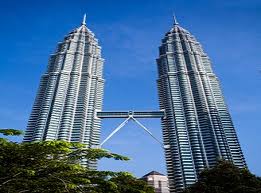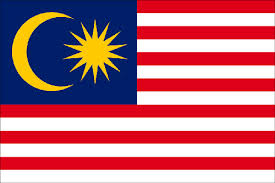 To follow-up from my last article published last October, and to complete upon my journey to this beautiful country, here are my latest remarks on business in Malaysia and how the coaching community can contribute to the booming growth of the economy.
To follow-up from my last article published last October, and to complete upon my journey to this beautiful country, here are my latest remarks on business in Malaysia and how the coaching community can contribute to the booming growth of the economy.
According to the star Biz week dated the 16th of Feb and Ernst&Young Malaysia performs extremely well, 2012 growth exceeds forecast of 4.5% to 5.1%.
Key contributors to this growth include for a start a strong government support and light fiscal policies. In effect the government support has been up to 20% support for infrastructure projects while private consumption maintained growth of 8.5% in the third quarter.
The support of the government in the development of talent and in technology will continue to play a vital role in the long-term development of Malaysia’s economic transformation.
Over the next decade, bilateral agreement between the emerging Asian economies.will expand. Malaysian companies have consistently focused on trade within the region, notably with Indonesia and Vietnam.
In effect Malaysia‘s favorable domestic market conditions will help developing the economic growth in 2013. The Healthy flow of foreign investments will also contribute to Malaysia becoming a developed country by 2020.
Robert Kuok remains Malaysia’s richest person with a fortune of UH$ 14 Billion according to the latest Forbes rich list. He owns Shangri-La hotels, Kerry properties and the south China Morning Post.
Malaysia now boasts 14 billion-dollar fortunes up from 11 a year ago and this year’s list of 50 richest in Malaysia includes nine new members – a minimum net worth of US$ 145 Million was needed to qualify for the list. Several of the fortunes are shared among members of extended families and can’t be attributed entirely to the person listed.
In Kuala Lumpur, property prices are steadily rising; among the foreign buyers are expatriates from Britain, other European countries and the United States as well as Investors from Hong Kong and Singapore. In effect the Malaysian government has provided incentives to attract foreign investment and ‘Malaysia my second home’ program encourages foreigners to invest in Malaysian assets and stay in the country on a long-term basis. Some developers have offered to lease out the residential properties to generate rental returns for the buyers, free inspection trips to the project under construction are also offered to foreign investors who have put down an initial deposit. In addition to a sales and purchase agreement, buyers have to sign the ‘state authority agreement’, a formal document for government approval of the purchase.
Business coaching has emerged as a critical activity to support individual and team development as well as new directions in customer satisfaction, productivity and overall organizational efficiency.
It is a competitive edge to helping a business grow efficiently and in a professional way. The main coaching federation represented in Malaysia seems to be ICF (International coaching federation) – I personally belong to MACC (Malaysian Association of Certified Coaches). This association is affiliated to ICF.
For a start, one must take into account the specificity of this beautiful country: it has three different main ethnic groups: Chinese, Indian and Malay. Hence the word intercultural is a ‘must’ on a daily basis.
Russel (1994) indicated that ” employee turnover can be controlled by using the coaching method. The important quality of a coach is that it encourages active participation and contribution from employees by involving them in making decisions on important issues”.
The result of this study indicated that there is a significant difference in organizations with a coaching development program on the outcome of managerial coaching, organizational commitment and turnover intention.
A study conducted by Hassan, Hashim and Ismail (2006) measured employees’ perception of human resource development (HRD) practices, that explored whether ISO certification leads to any improvements in HRD system, and examined the role of HRD practices on employees’ development climate and quality orientation in Malaysian organizations. The study revealed that organizations with better learning, training and development systems, reward and recognition, and information systems, promoted a much better human resource development climate.
Therefore employers in Malaysia would gain competitive advantage in this war for talents by becoming the choice employers. They need to transform themselves to become branded developers. The organizations that are branded developers have a track record of excellence in leadership development and turn this reputation into a source of competitive advantage in recruiting, engaging, and retaining employees (Younger et al., 2007). Especially so since the Malaysian government is placing such a strong emphasis on education.
I also noticed, by attending young entrepreneurs networking events, that several ladies were developing strong businesses. I believe they could also benefit from a coaching expertise to enhance their assertivity as Malaysia is a society where fewer women work compared to Europe.
The Malaysian business society is also starting to notice that EI – emotional Intelligence is a paramount ally when trying to win over a piece of business – just to mention a few simple tips that are a must in Malaysian business etiquette :
– Use both hands : if one need to hand out a business card or receive one from your local counterpart, do so with both hands. The Malaysians view that as a sign of respect and it will certainly help you create a great impression at business meetings.
– Small talk: if you’re networking for business, always start the conversation with small talk. Ask about the person’s family and even delve a little more into topics such as hobbies and favorite foods (especially if the business person is from Chinese origin: food and family are the pillars of the Chinese culture) then gradually divert to business matters.
– Elders first : always remember to respect the oldest person in a social group. The ‘golden generation’ is generally given the right of way in Malaysian culture and treated with utmost respect. When dining out wait for the eldest to begin eating before you start on your meal.
That’s where, I strongly believe, we as coaching experts can make a huge difference by helping our business clients grow their business in the most environmental friendly way for their businesses and especially help them developing their competitive edge by understanding more their clients’ needs. The coaching community in Malaysia is growing at a healthy rate because the business community is aware of this need and understand how coaching works : we help our client reach their full potential.




Nice article!
By the way, RK is no longer in Malaysia… He moved to HK.. their gain is our loss…
Since when ? the article I got the news from was published last Feb 2013… !
thank you Loretta